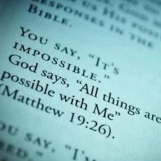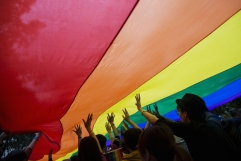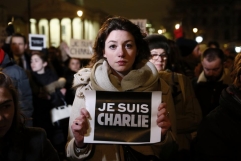
Do you think the church and Christianity should have a position of special entitlement in Britain today, or is your concern simply that it has the same rights as every other grouping in society? Now of course those positions need not be exclusively either/or – but they do represent an increasingly focused divide among evangelicals.
For some Britain is still, albeit nominally and declining, a 'Christian country' based on the 59 per cent of the population who self-identified themselves as Christian in the 2011 Census. On that basis they argue Christianity should have a degree of priority in the nation over other faiths and beliefs. That is, of course, a position that Christianity has enjoyed in the UK for many centuries. Even today the church continues to have a favoured role in national affairs – such as enshrined representation in the House of Lords, conducting Royal weddings, leading Remembrance Day ceremonies and having the lion's share of time in school RE programmes etc. The defenders of such Christian privilege rightly point to many examples of positive influence that these arrangements have allowed. Thus the case for the maintenance of them is based on both the Census figures and the conviction that the nation's welfare is tied to the status of Christianity within it.
Others are not convinced that, for all its historic benefits, such Christian privilege is sustainable or even justifiable. They see the Census figures as beguilingly superficial, the self-identification as 'Christian' often being little more than someone knowing that they're not Muslim or Buddhist. Indeed the numbers of 'Bible-believing' (evangelical) Christians in the UK, according to all the research carried out on actual beliefs, is certainly well below 10 per cent (under 5 per cent is probably more realistic). Thus for many evangelicals the UK is not a Christian country and to describe it as such is at best misleading and at worst theologically dangerous. They worry that cultural Christianity hollowed out of its radical content simply encourages spiritual complacency and lulls people into a sense of false security. For such the inclusion of the church in national affairs is little more than window dressing in an essentially pagan shop. Their concern therefore is not to claim a reality that doesn't exist but rather that 'evangelical Christianity' (ie the unpopular version) gets the same protections as other minority groups.
It's not that Christian 'Protectionists' are ungrateful for or dismissive of those areas where Christianity retains a degree of privilege – indeed where such platforms are given they are gladly taken. The issue is whether such privilege should be campaigned for, demanded or even enforced. The fear being that to do so will play into perceptions and accusations of the church seeking to impose itself and exclude others in civic affairs. The church rightly believes Christianity to be truth but equally it knows (or should know) that it is truth that cannot be forced upon others. Further, insisting upon Christian privilege on the basis of Census statistics is a very dangerous game – the Christian percentage of the UK population has been dropping for decades and 2011 may be the last one with such a majority.
For Christian 'Protectionists' the issue to focus on is free speech. It is here they see the most pressing threat – ie not the loss of privilege but the imposition of restrictions. If Christianity seeks a position for itself that it refuses to grant to others then it can hardly complain (in principle) if the tables are turned. Any demand to be recognised as a superior truth, and thus to trump others, will not last long in a pluralistic and fragmented society of competing interest groups (and besides its 'superiority' is to be manifested in the lifestyles of its adherents rather than in having civic prominence). Paul's complaint to the Philippian magistrates wasn't that they hadn't put him up in a hotel but that he had been denied the basic rights and protections of every Roman citizen – Christian or otherwise (Acts 16). After all, as long as the Gospel can be preached freely it will look after itself.
Whether you tend towards Christian 'Privilege' or 'Protection' this is a subject that throws up a range of complications and will never be totally black and white. Evangelicals with an 'establishment' background, in terms of civic involvements and recognition, are more likely to want to hold onto their seat at the table. The challenge for them will be to do so without compromise. Alternatively for evangelicals from dissenting backgrounds, who historically have been detached from the State, the loss of Christian privilege may well feel less significant. The challenge for them, however, will be to resist retreating into an insular and privatised faith ghettos.
Both positions will have to deal with strange bedfellows at times, either the other minority groups seeking similar protections or liberal Christian groups seeking similar privilege. Which crucially means that this shouldn't be an area for division or fall-out between evangelicals. We all want the same thing – to see Christ authentically honoured by people of all backgrounds in our country.
However, in a culture of decreasing Christian affiliation and ongoing societal fragmentation, this is an issue that Christians will increasingly have to decide where their energies will be best spent: Privilege or Protection?
Andy Hunter is FIEC's Scotland Director.


















